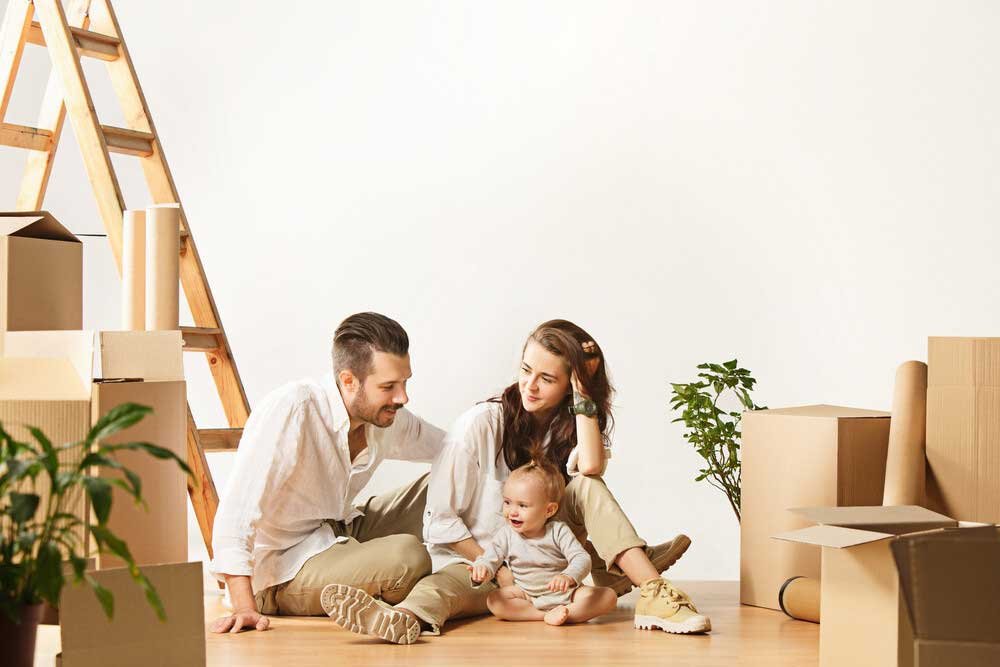Moving is stressful enough as it is. Throw a baby into the mix and things get even more complicated, bumping up your stress levels the more.
But moving with a newborn doesn’t have to be a scary prospect. With careful planning and execution, you can pull it off without getting overwhelmed.
Here are some tips that can help make the experience of moving with a newborn less nerve-wracking.
-
Before the Move
Schedule a visit to the doctor
Days or weeks ahead of the move, visit the pediatrician and discuss the move with them.
They will check the health of the baby and make sure vaccinations are up-to-date. A pediatrician can also provide some pointers for moving with baby that can prove invaluable.
While you’re there, ask for recommendations on finding a new doctor, and get copies of all medical records and prescriptions that you’ll share with the new doctor.
Look for a family-friendly moving option
When moving with a newborn, ideally you want to ease the burden on yourself by opting to move with an experienced moving company that will take your special situation into account.
You can arrange with the mover on the tasks you can do yourself (for example, packing) or designate everything to them in what is known as a full-service move.
A full-service move involves the mover handling every single aspect of moving, relieving you of the pressure associated with a house move. This kind of move is expensive, though, but understandably so.
If you’ll be using the mover’s means of transport, you also want to be sure in advance that their trucks or vans are well-equipped to move with a newborn baby. Inquire how that is the case as some are only interested in your business, so make sure you’re comfortable with their provisions.
Plan the trip
If you’re moving long-distance, you need to map out the route, taking into account family-friendly rest stops.
When traveling with a baby, you need to be flexible and plan for extra time as there will be things like diaper changes to deal with.
Pack infant items
Separate the packing into essentials and non-essentials.
The baby essentials list should have everything you’ll need during the trip and at night (which is a lot!) especially if there is a likelihood you will arrive before the mover, assuming you’re traveling in your vehicle.
This includes items like wipes, dummy clips, diapers, good rash cream, breast pump, important clothing, bibs, formula, favorite toy, blanket you name it.
The non-essentials box should pack things you won’t find an immediate need for – extra clothing, toys, nursery décor etc.
-
On Moving Day
On the big day itself, it is important to keep the little one away from all the commotion of moving.
If possible, have someone – relative, friend, or babysitter – take over baby duties which should also free you to focus on the important job at hand.
Designate an empty room if no help is available, then take turns with someone else to watch the baby.
-
After the Move
After arriving at the new house:
Unpack the nursery
Setting up the nursery will give the baby a feeling of familiarity when you get to the new house.
This will also afford the baby a safe and quiet space while you go about the unpacking.
Baby-proof the home
Baby-proofing the home is all about making the house a safe environment for the newborn.
That includes a proper scrub and sanitizing of the house (yes, that also applied pre Covid-19), getting rid of choking hazards like cords and packing materials, blocking off staircases and other perilous areas with safety gates and so on.
Visit the new pediatrician
Schedule an orientation meeting with the new doctor to see how the little one is faring post-move.
This is also an opportunity for the pediatrician to see your baby’s vaccination records and learn about its medical history.



